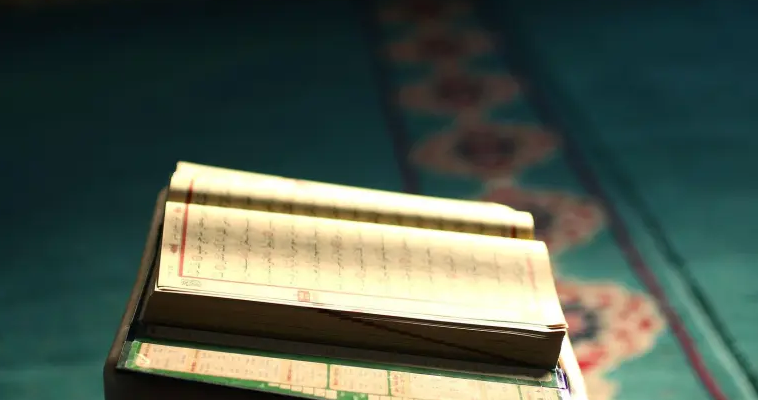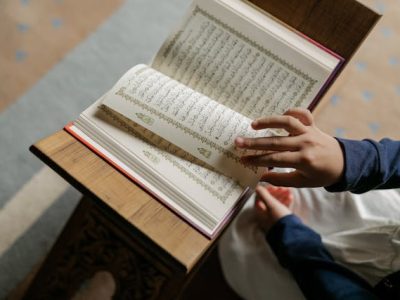Due to the evolution of Arabic writing styles over the course of history. The Arabic script that we are familiar with today did not exist during Muhammad’s time. In addition, the Quran was preserved through oral transmission as well as written references on a variety of various materials.
The Quran was preserved during the past times:
The following are the means by which the Quran was kept safe during the time of the prophets:
- After obtaining revelation, the prophet gave instructions to his scribes that they should write for him immediately.
- Skin from animals
- Animal skeletons and bones
- The bark of trees and the stalks of leaves
- Smooth stones
- By committing material to memory
- The prophet conveyed wisdom to his wives, instructing them to pass it on to other women.
- Prayers consisting of recitations.
What do you consider to be the most important features of the Quran?
The three most important ideas that the Quran teaches are that there is only one God. That God guides people through people called prophets, and that there is life after death. These ideas not only change how their followers see the world, but also how people live in the real world.
The Islamic holy book, the Quran, is highly influential due to a number of factors. Muslims consider it to be the verbatim word of God as revealed to Muhammad, hence this fact alone gives it great significance. The 114 chapters (surah’s) of the Quran include a wide range of subjects, from theology and ethics to law and moral instruction and direction for daily life.
The beauty of the Quran’s language and writing style has attracted people throughout history and across cultures. Its teachings shape the moral compass of Islamic communities by emphasizing monotheism, compassion, justice, and moral purity. In addition, it takes a broad view of society as a whole, including societal problems, family relationships, and community harmony
Why is it so vital to read the Quran?
Muslims believe that the Quran is significant because it is a Divine revelation. This means that the angel Gabriel delivered the book from God to the final Prophet, Muhammad (peace be upon him). The Quran is the word of God, and it provides divine direction for the people of the world. Muslims believe that because the Quran is the message of the Supreme Lord, it bears a tremendous amount of weight and impact in everyday life. The rules that it establishes are the way by which one can win Allah’s pleasure and enter heaven. As we are Muslims we have to memorize Quran properly by enrolling in Quran memorization program so that we can save every single world of Quran in our hearts.
Proof of the Preservation of the Quran:
Preserving the Quran is vital to Islam because Muslims believe it to be the verbatim revelation of God to Prophet Muhammad. Several factors support this preservation.
The first method of transmitting the Quran was oral, and it placed a premium on memorizing and reciting each verse word for word. An abundance of modern-day experienced memorizers (hafiz) attests to this painstaking preservation.
Second, the early Muslim community, with the Prophet Muhammad’s leadership, compiled the Quran into literary form during his lifetime. Uthman ibn Affan, the second caliph, further consolidated the work of the Prophet’s companions, ensuring that all copies were accurate.
Finally, the textual homogeneity of historical records and manuscripts from various countries and time periods is impressive. Muslims are confident that the Quran has remained unchanged since its revelation more than 1400 years ago, and this evidence lends credence to this belief. This commitment to quran memorization played a pivotal role in preserving the textual source later with its authenticity.
Why has the Quran never been subject to any kind of revision?
Since Allah has asserted that He is the guardian of the Quran, we have faith that He will preserve this magnificent book. He has bestowed onto humanity. Over the course of more than 14 centuries, the Quran has been protected from alteration. And it will continue to be guarded from modification until the Day of Judgment.
Conclusion
Careful oral transmission and written documentation of the Quran have assured its survival from the time of the Prophet Muhammad. The Prophet himself recited the revelations to his followers, who then committed them to memory and accurately passed them on to subsequent generations. The Prophet appointed scribes to record the revelations accurately on a variety of media. Errors or changes were much less likely to occur with this combined memorizing and documentation strategy. The Prophet’s watchful eye ensured that every revelation was true. This beautiful combination of oral tradition and written record is a witness to the Quran’s timeless authenticity that has stood the test of time.

















Comments